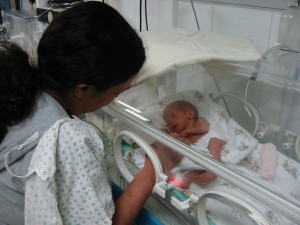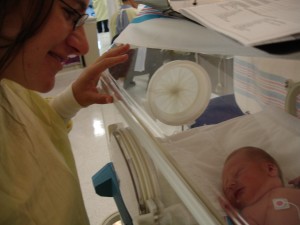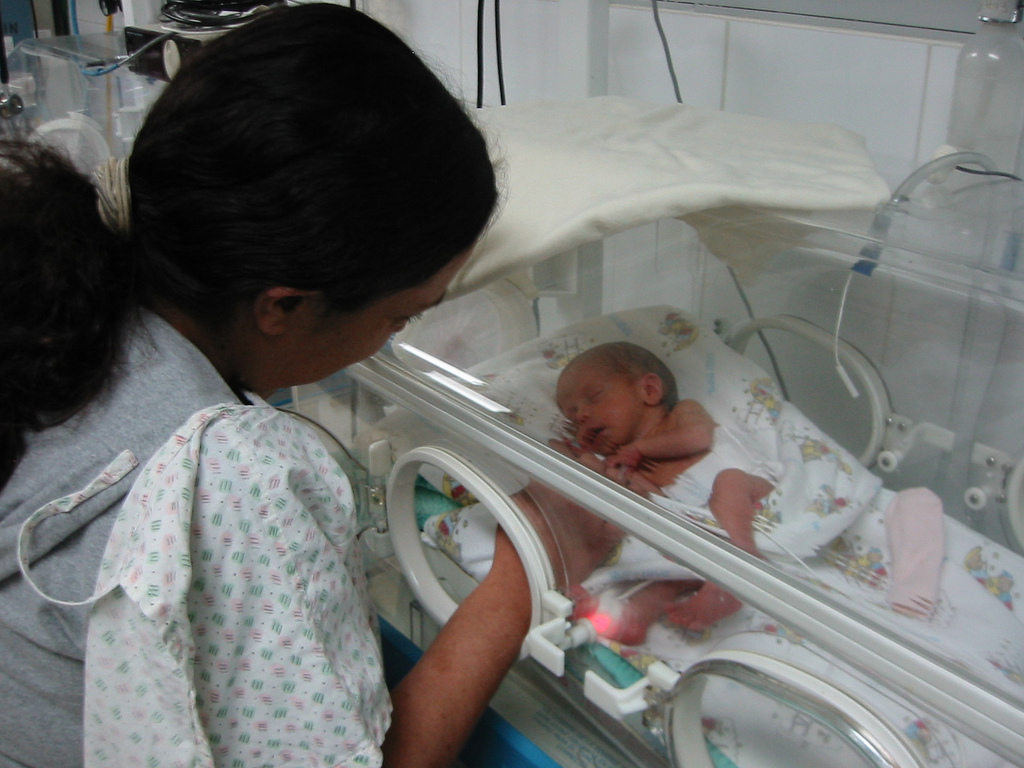Any babies who is born before the completion of 37 weeks of pregnancy is termed a premature baby.
In India, about 10% of all births are premature.
maturely Malnutrition, infection, high blood pressure, toxaemia of pregnancy, diabetes and severe heart and lung diseases in the mother are common causes leading to premature births.
Sometimes, a baby may have to be delivered preby the doctor, if the baby is detected to be suffering from a lack of proper oxygen supply in the mother’s womb (foetal distress).
Preterm babies have a low birth weight due to the inadequate time available to their various organs for full growth in the mother’s womb prior to their delivery.
In some cases, certain birth defects and infections in the baby and in some others, poor ability of the placenta to provide adequate food and oxygen to the developing baby result in his poor growth and disproportionately low birth weight.

There is a comparatively high incidence of premature births and a disproportionate low birth weight of newborn babies when there is close spacing between pregnancies, the mother has borne more than four previous children, pregnancy occurs during teenage or at over 35 years of age and when the mother has been smoking and consuming alcohol during pregnancy.
A baby with a birth weight less than 2.5 kg is termed as ‘low birth weight’ baby.
A baby becomes particularly vulnerable when his weight is less than 2 kg.
The earlier the premature babies are born and lower the birth weight, greater is the severity of the handicaps of these babies and their need for help.
A very premature baby is likely to have difficulties in breathing, maintenance of his body temperature and feeding. He, therefore, has to be nursed in an incubator.

The incubator’s inside temperature and the humidity and oxygen content of its air can be carefully controlled and adjusted according to the baby’s needs. His nutritional requirements are met through intravenous feeding or feeding through a tube passed into his stomach.
These babies are also liable to suffer from complications involving lungs, heart, nervous system and kidneys because of the immaturity of these and other organs.
There ability to maintain their blood glucose level and regulate other metabolic functions is also deficient.
Their immune system is also not well developed and they have poor resistance against infections.
For these reasons, such babies need to be carefully monitored and nursed in a special intensive care unit.
They are discharged only after they are completely well and stabilized, are taking feeds by mouth and showing steady gain in their body weight.
They need special care at home, which has been explained in the next section.
